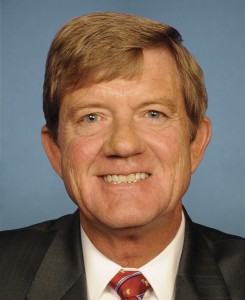
CO-04 (Special Election)
See Full Big Line
(R) Greg Lopez
(R) Trisha Calvarese
90%
10%

President (To Win Colorado)
See Full Big Line
(D) Joe Biden*
(R) Donald Trump
80%
20%↓

CO-01 (Denver)
See Full Big Line
(D) Diana DeGette*
90%

CO-02 (Boulder-ish)
See Full Big Line
(D) Joe Neguse*
90%

CO-03 (West & Southern CO)
See Full Big Line
(D) Adam Frisch
(R) Jeff Hurd
(R) Ron Hanks
40%
30%
20%

CO-04 (Northeast-ish Colorado)
See Full Big Line
(R) Lauren Boebert
(R) Deborah Flora
(R) J. Sonnenberg
30%↑
15%↑
10%↓

CO-05 (Colorado Springs)
See Full Big Line
(R) Dave Williams
(R) Jeff Crank
50%↓
50%↑

CO-06 (Aurora)
See Full Big Line
(D) Jason Crow*
90%

CO-07 (Jefferson County)
See Full Big Line
(D) Brittany Pettersen
85%↑

CO-08 (Northern Colo.)
See Full Big Line
(D) Yadira Caraveo
(R) Gabe Evans
(R) Janak Joshi
60%↑
35%↓
30%↑

State Senate Majority
See Full Big Line
DEMOCRATS
REPUBLICANS
80%
20%

State House Majority
See Full Big Line
DEMOCRATS
REPUBLICANS
95%
5%
 July 24, 2019 12:44 PM UTC
July 24, 2019 12:44 PM UTC 3 Comments
3 Comments

If Scott Tipton ever does something good for the environment by mistake, he'll cut a tree down to make it even.
It's not a surprise that Wilderness Study Areas in Montezuma County would be eliminated in Tipton's bill. Despite being very dependent on outdoor recreation & tourism as a major part of the county's economy; the county being home to a national park and all, or part of, three national monuments; the county commissioners are strongly opposed to wilderness.
The county commissioners there also don't like the Colorado Wilderness Act of 2019, introduced in May by Rep. Diana DeGette.
Cory Gardner's anti-wilderness bill removes existing protection from almost as much public lands as it provides additional protections to. It strips out Thompson Divide, one of the central portions of the widely supported CORE Act, from protection. It ignores efforts to designate Camp Hale, once home to the prestigious 10th Mountain Division, as a historic and heritage area.
It also removes provisions to begin addressing the massive amounts of climate pollution being vented from coal mines in western Colorado, particularly in Gunnison and Delta counties. The CORE act would direct BLM to begin addressing this issue it has instead ignored for decades.
The Gardner/Tipton bill is a subterfuge – an attempt to fool Coloradans that may not be paying attention but who want our elected leaders to provide meaningful protection for our beloved public lands and the environment. Let's make sure they don't get away with it.